
An agreement or contract is a legally binding document that is signed between two or more willing parties. When an agreement is made for a specific agency, it is known as an agency contract. To terminate the contract implies that the involved parties may, by mutual agreement, terminate the agency. relationship with an agency requires the mutual agreement of the parties and both parties have the power to withdraw their consent.



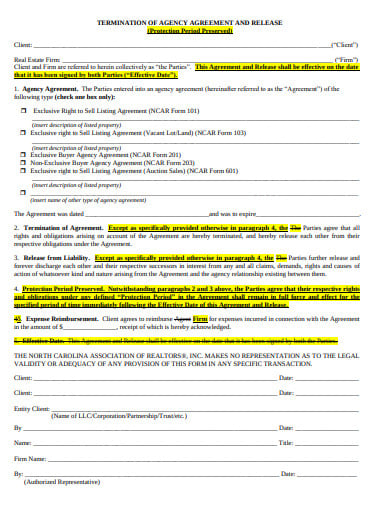
ncrealtors.org
File Format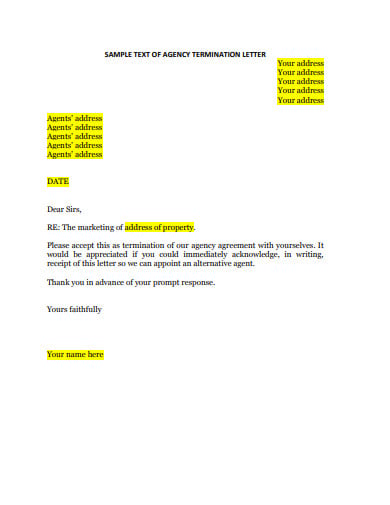
maxinelester.co.uk
File Format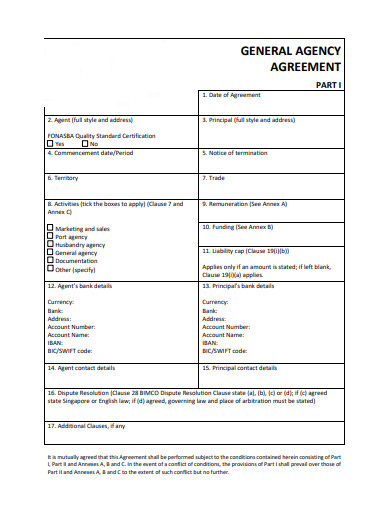
fonasba.com
File Format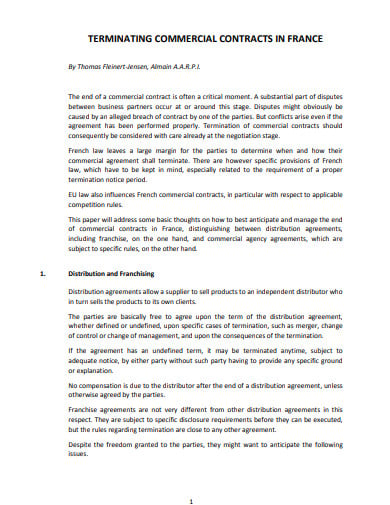
nysba.org
File Format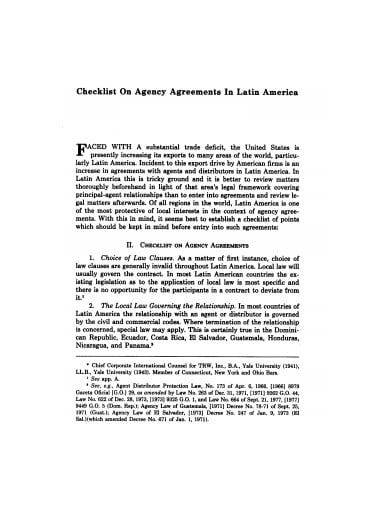
scholarlycommons.law.case.edu
File Format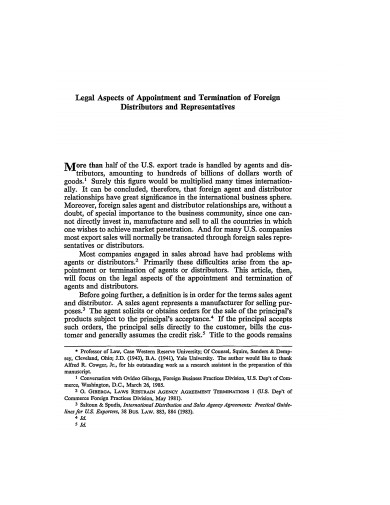
scholarlycommons.law.case.edu
File Format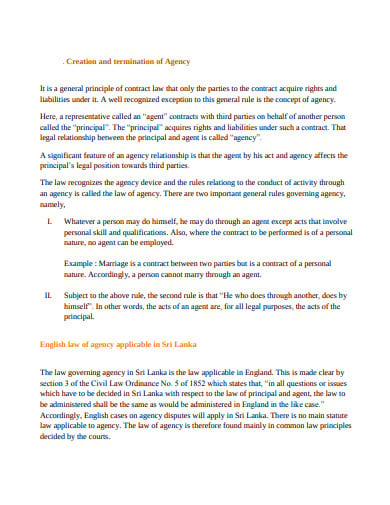
casrilanka.com
File Format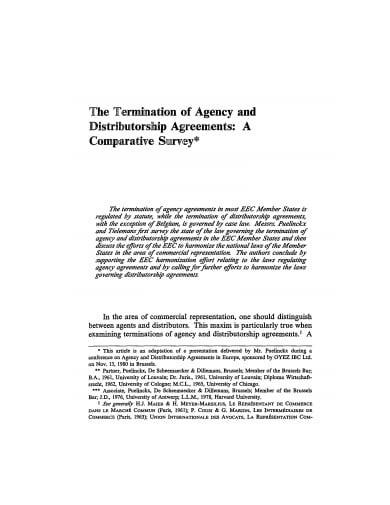
scholarlycommons.law.northwestern.edu
File Format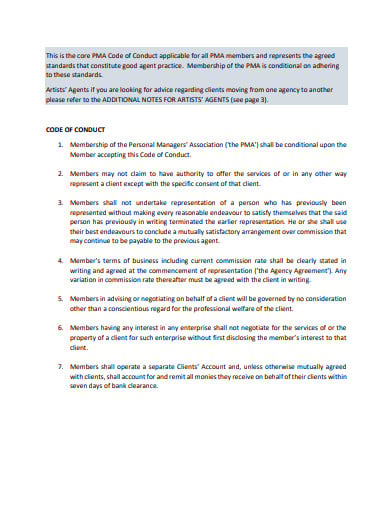
thepma.com
File Format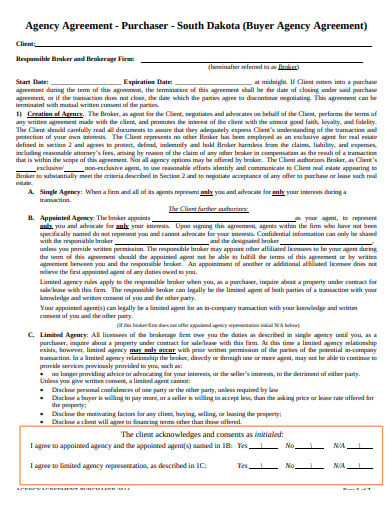
dlr.sd.gov
File Format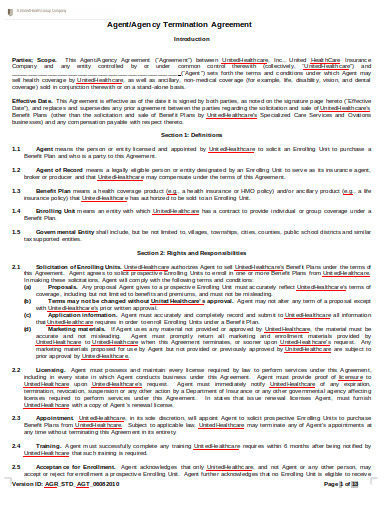
uhc.com
File Format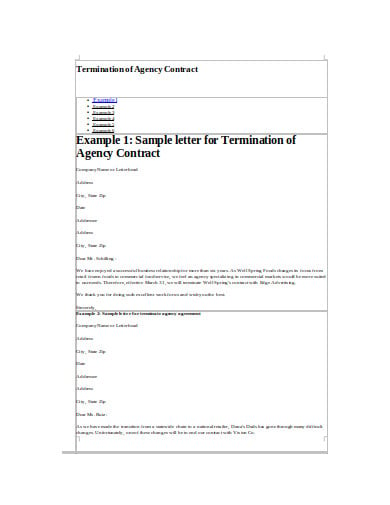
bizdocx.com
File FormatAn agreement or a contract generally terminates when the contract’s validity period expires. In many cases, the contract may even be renegotiated and renewed. There are however three separate termination scenarios that can be specified in a contract. This includes:
This scenario is for a customer to use when the company has not complied with the terms of the contract. Depending on the terms of the contract, termination can be triggered by the failure to adhere to the delivery date, or failure to provide items with the required level of quality. No matter the reason, the client must be able to display proof to validate the notice of cancellation. Based on the terms of the contract, the supplier may have a time limit to deal with the issues, or if they disagree with the reasons given by the client, they may refer their case to a mediator.
In several cases, the agreement is terminated without any instances that trigger a cause by mutual consent. Sometimes the manufacturer ceases the production of a product or service used by the consumer and thus the agreement can not be fulfilled anymore. In many other cases, the client may no longer manufacture finished products or services which require compliant parts of the contract.
Sellers have discovered that customers have canceled convenience contracts because they are in financial trouble and do not want to be tied to a contract. If this termination occurs, the seller should not suffer any financial loss due to the client’s actions.
Waiver of rights refers to the situation where, for some reason, a customer decides to terminate a contract such as if the quality of the items is not up to the specification or the deliveries are never on time. In this situation, the customer must be careful that they may have waived their rights. If a supplier delivers their shipments to the client in such a manner that they are often late, and the client has not protested, the client may have exercised their right to terminate the arrangement. This is because the customer has agreed that the deliveries are often late and that they can not then terminate the contract on the grounds of late deliveries at a later time.
A client may cancel the contract with a vendor if the vendor infringes the contract in one way or the other among several ways; late delivery, incorrect quality or specification of the supplied items, incorrectly supplied items or if the supplier says they can not deliver the items. If the supplier says they can’t supply the items specified in the contract the customer can find the same items from another vendor. If the other supplier’s items are more expensive then the client may receive reimbursement from the vendor who breached the contract.
A contract is a legal document binding at least two parties to each other and requiring them to meet certain obligations as set out in the contract. In some cases, contract termination can occur which would make the contract legally binding void. A contract may be broken only by the parties to the agreement.
If one party deliberately fails to honor a contract, it is called a breach of contract and is grounds for termination of the contract. There may be a breach of contract because one party either failed to fulfill its obligations at all or failed to fulfill its obligations completely. For instance, If you bought a product or service that did not show up until one day after the stipulated delivery date, it refers to an immaterial breach of the agreement. However, if your order did not arrive until two weeks after the delivery date and your business was impacted, then that refers to a material breach of the agreement. In general, the injured party has the right to seek monetary damages for his losses with a material breach of contract as well as to withdraw the agreement.
You may terminate a contract if, for a specific reason, you and the other party have a prior written agreement that requires a contract termination. A break clause is a general name for this type of provision. The contract must provide specifics of what constitutes a justification for termination of a contract. It should also specify what actions any one of the parties needs to take to terminate the contract. In most cases, to terminate the contract, one party must submit a written notice to the other party.
A contract rescission occurs when the contract is terminated due to an individual mispresenting himself or herself, acted illegally – for instance, fraud – or made an error. For instance, if you purchased a property but discover after further inspection that the seller intentionally disguised the home’s poor physical condition, you may be able to void the agreement. A rescission of the contract may occur if one party is not old enough to enter into a contract or if an elderly person is unable to make legal decisions due to incapacity.
In principle, a contract is terminated once the obligations set out in the contract have been finished. The involved parties should keep records that show that they are fulfilling their contractual obligations. Such records are helpful when the other party attempts to dispute the fulfillment of your contractual obligations later on. When a dispute arises, a court of law will require proof of contract fulfillment.